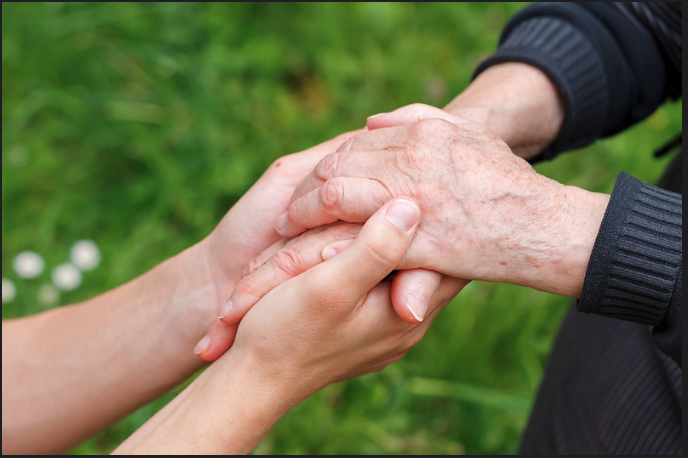“Is it getting worse?”
I glance at the door, willing my resident to come back.
“What did the CT show?”
I turn back around.
Her wide eyes meet mine, a first-time mother’s fear reflected in them,
and I feel deeply, woefully inadequate.
“I’m sorry, ma’am. I’m just a med student. The rest of the team will be here shortly, they’ll explain everything to you.”
We wait in silence.
—
“What should I do?”
I hesitate. “Well, I might have an idea, but let me discuss with my attending first.” I rise from the rolling stool and slip my stethoscope back into my white coat pocket.
“Give me a minute, I’ll be right back.”
He smiles. “Sure thing, Doc.”
I shake my head, embarrassed. “I’m just a med student.”
—
“This is our 36-year-old man with a history of type 2 diabetes and non-alcoholic fatty liver disease, admitted for symptomatic hyponatremia, hospital day four. Labs show elevation in WBC and platelet count, sodium holding at–”
“What did you say was his white count? Compared to yesterday?”
I stumble, fumbling with the papers in my hand.
“I–I’m not sure. I didn’t write down the exact numbers, sorry.”
The senior resident jumps in, and the rest of rounds pass without incident.
Later, in the workroom, the senior leans across his computer and says,
“Our attending likes to know the exact lab values when you present.”
He shrugs at the dejected look on my face.
“It’s alright. Rookie mistake. You’re just a med student, you’ll get there.”
—
“Did you ask about bleeding during sex?”
No, I forgot.
“What about pain with bowel movements?”
Also no.
My resident looks harried. It’s only 9:30 a.m. and we’re already behind schedule. She sighs and hands me the next file.
“I’ll handle it. Here, go see the next one.”
Efficiency is the name of the game in this high-volume clinic, but I spend all day feeling like I’m just in the way.
—
“I’ve gotta put in these orders and return some pages. Can you go update the patient?”
“Sure,” I say, and head down the hall.
What begins as a brief, five-minute update turns into a forty-minute conversation about the patient’s pets and their passion for fixing up old cars.
We laugh at the goofy chihuahua videos they share with me, and as I get up to leave, they thank me for listening.
“Of course,” I say. “You don’t need to thank me for that.”
“I do,” they reply, “because the doctors are so busy, none of them took the time to sit with me like you just did. And I really appreciated that. So thank you.”
On my way back to finish writing notes, I smile.
—
Our new patient on the internal medicine wards has a mystery diagnosis. It’s been days, and we’ve barely made any headway.
We stand outside the patient’s room, in a circle, racking our brains for new ideas.
“What about an EEG?” I say suddenly. “It could be a seizure — something we’re not seeing that it might be able to catch.”
“Great thought.” My attending turns to the resident. “Let’s order an EEG.”
Elation carries me the rest of the day.
—
Nowhere to make you feel more inadequate than the trauma bay, where I have neither the medical knowledge nor skill to be useful in running codes and surveys.
A woman comes in — victim of a dog attack at a Fourth of July party, deep gashes in both her arms, exposed muscle and tendon gaping.
She’s talking constantly, delirious with pain and panic.
The team efficiently assesses her wounds, but no one hears her.
I feel moved to bear witness.
I sit by her side and hold her hand until they take her to the OR, scrub in to help debride her wounds, and follow her into recovery.
We talk about the party, her boyfriend, her faith in God.
The pain meds kick in — she becomes drowsy. I hold her hand as she dozes in and out of consciousness.
At one point, she resurfaces — lucid for a moment — and whispers, “Don’t leave.”
I stay with her until they wheel her out of post-op and back to her room.
—
Later, after returning to the trauma bay,
I check her chart and find a brief update note written by the nurse in the recovery unit:
“Medical student at bedside providing emotional support.”
—
I am just a medical student.
And for once
(for more than once),
it is enough.
Image credit: Help giving (CC BY-NC 2.0) by BournemouthBC
 Poetry Thursdays is an initiative that highlights poems by medical students. If you are interested in contributing or would like to learn more, please contact our editors.
Poetry Thursdays is an initiative that highlights poems by medical students. If you are interested in contributing or would like to learn more, please contact our editors.

